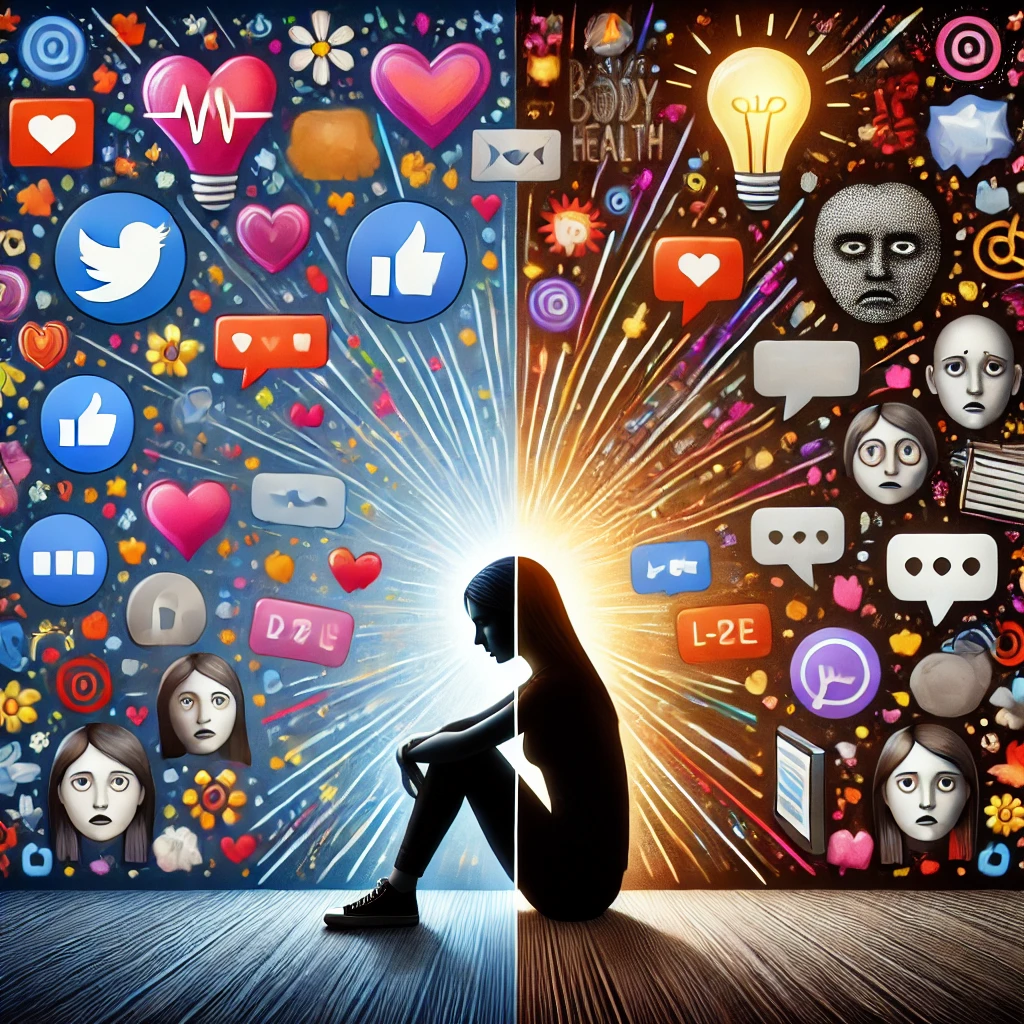Social Media and Mental Health: Positive and Negative Impacts Explained
Social media has become an integral part of modern life, revolutionizing the way people communicate, share information, and interact with the world. While its impact is undeniable, the role of social media in shaping mental health has sparked significant debate. This article explores the positive and negative effects of social media on mental health, providing insights into its influence on users’ psychological well-being.
Positive Effects of Social Media on Mental Health
1. Building Connections and Reducing Loneliness
Social media platforms enable users to connect with friends, family, and like-minded communities, fostering a sense of belonging. For individuals who struggle with isolation or live in remote areas, these platforms can serve as a lifeline, reducing feelings of loneliness.
- Examples: Groups for mental health support, forums for shared interests, and video calls with distant loved ones.
- Research Insight: A study published in Cyberpsychology, Behavior, and Social Networking found that online interactions can help alleviate loneliness when used in moderation.
2. Raising Awareness and Promoting Advocacy
Social media serves as a powerful tool for raising awareness about mental health issues and reducing stigma. Campaigns like #EndTheStigma and #MentalHealthAwareness reach millions, encouraging open conversations about psychological well-being.
- Impact: Increased access to mental health resources and a growing sense of empowerment among those with mental illnesses.
3. Access to Support Networks
Online communities provide a platform for individuals to share their experiences and seek support. Whether through peer support groups or professional advice, these networks can positively influence mental health.
- Example: Platforms like Reddit or Facebook hosting groups for people dealing with anxiety, depression, or specific disorders.
4. Encouraging Creativity and Self-expression
Social media allows users to express themselves through writing, art, photography, and videos. Creative expression is known to improve mental health by reducing stress and fostering self-acceptance.
- Case in Point: Instagram’s art community or TikTok videos discussing mental health coping strategies.
Negative Effects of Social Media on Mental Health
1. Comparison and Low Self-esteem
One of the most well-documented downsides of social media is its tendency to foster unhealthy comparisons. Users often compare themselves to idealized versions of others’ lives, leading to feelings of inadequacy and diminished self-esteem.
- Impact: Platforms like Instagram are frequently linked to body image concerns, particularly among young women.
- Statistic: According to a report by the Royal Society for Public Health, 70% of young people report feeling worse about their bodies after using social media.
2. Addiction and Overuse
Excessive use of social media can lead to addiction, disrupting sleep patterns, productivity, and overall mental health. Doomscrolling—endlessly consuming negative news—exacerbates anxiety and stress.
- Example: Constant notifications and endless feeds contribute to “fear of missing out” (FOMO), making it difficult to disconnect.
3. Exposure to Cyberbullying
Cyberbullying is a significant concern, with victims experiencing anxiety, depression, and, in severe cases, suicidal thoughts. Social media can amplify bullying through public posts and widespread visibility.
- Statistic: A study by Pew Research Center found that 59% of teenagers have experienced some form of online harassment.
4. Information Overload and Misinformation
The vast amount of information on social media can overwhelm users, causing mental fatigue. Moreover, exposure to misinformation—especially on topics like mental health—can lead to confusion and stress.
Balancing Social Media Use for Better Mental Health
To minimize the negative effects and maximize the benefits of social media, users can adopt healthier habits. Here are some practical strategies:
- Set Time Limits: Use app timers or focus modes to reduce screen time.
- Curate Your Feed: Follow accounts that promote positivity and unfollow those that trigger negative feelings.
- Take Breaks: Regular digital detoxes can refresh the mind and reduce stress.
- Engage Mindfully: Be intentional about the content you engage with and avoid doomscrolling.
- Seek Professional Help: If social media use exacerbates mental health issues, consulting a therapist is advisable.
Conclusion
Social media has a dual impact on mental health, offering both opportunities for connection and creativity and risks of comparison, addiction, and cyberbullying. While its effects vary across individuals, mindful usage can help harness its benefits while minimizing potential harm. By fostering awareness and promoting healthier digital habits, users can navigate social media’s complex landscape in a way that supports their mental well-being.
Social Media and Mental Health: Positive and Negative Impacts Explained
